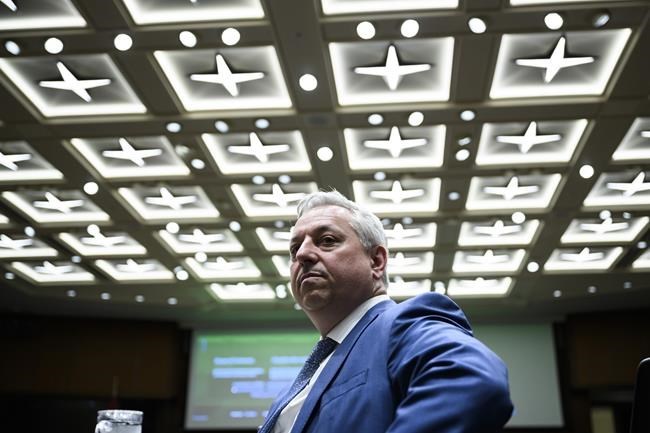OTTAWA — The federal government is warning of "very practical limitations" on the extent to which classified information can be made public at a commission of inquiry into foreign interference.
In a report tabled Thursday at the inquiry, federal lawyers say the public release of intelligence about interference threats from China and others would risk exposing vital Canadian Security Intelligence Service information.
It says this is compounded by the "mosaic effect" — where adversaries track and piece together small pieces of intelligence over a long period to reveal a clearer picture.
This could divulge intelligence gaps, methods of operation, foreign partnerships, and identities of CSIS contacts and human sources, the report says.
It warns that countries engaged in foreign interference have significant abilities to aggregate "big data" and use geolocation information and artificial intelligence to make sense of material released over a number of years.
For example, media reporting has indicated that China used such methods to dismantle the U.S. Central Intelligence Agency's human source network, costing dozens of lives, the federal document says.
The report was entered into evidence at the inquiry as intelligence officials, including CSIS director David Vigneault, took part in a hearing on how the inquiry can best navigate the obstacles posed by official secrecy.
Vigneault signalled that the spy agency supports finding ways to disclose as much information as possible on the sensitive topic of foreign interference.
It is not "business as usual" when it comes to keeping a tight rein of secrecy on classified materials, he said.
The discussions on national security and confidentiality of information will help set the stage for the next public hearings, likely to take place at the end of March.
The March hearings will delve into allegations of foreign interference by China, India, Russia and others in the 2019 and 2021 federal elections, with a report on these matters due May 3.
Commissioner Marie-Josée Hogue and her counsel will be able to see all of the highly classified materials filed with the inquiry.
But the federal report tabled Thursday suggests the inquiry will have challenges making a good deal of information public.
Many of the foreign interference investigations that were active as long as five years ago are still active today, the report says. As a result, disclosures that identify human sources, or allow for their identities to be inferred, risk sources' safety and that of people close to them.
The release of such information could also make Canada's allies reluctant to share certain secrets with CSIS, the report suggests.
The inquiry has already had a chance to see several classified documents concerning foreign interference. In a preliminary exercise, the inquiry asked the government to review a selection of these records with an eye to preparing them for public release.
A number of the records in question were almost entirely stripped of information by the end of the process.
"The documents at issue demonstrate in concrete terms one of the most difficult practical constraints that the Inquiry will face in fulfilling its mandate," the federal report says.
Even so, the government recognizes the importance of educating the public on the threat of foreign interference, the report adds.
With this in mind, the federal lawyers suggest options including the release of some documents with redactions, publication of summaries of "a limited number of documents or topics," and closed-door hearings that would be followed by release of a public summary.
In that vein, one top-secret document vetted for the exercise, a July 2021 CSIS intelligence assessment, contained several redactions but clearly warned that Canada was a high-priority target of the Chinese government.
China's efforts continued to be "sophisticated, pervasive and persistent," the assessment said.
It claimed China was the "foremost perpetrator" of foreign interference activity in Canada and pragmatically targeted all levels of government, as well as facets of Canadian society including diaspora groups, media, dissidents, activists, elites, elected officials and academics.
Activity targeting Canada's democratic institutions was "primarily motivated by a desire to cultivate relationships, or support political candidates and incumbents, who seem receptive or actively promote" China's viewpoints.
Beijing targeted municipal-level figures as a means of generating bottom-up pressure on higher levels of government to influence policies to the benefit of China, the assessment added. In some cases, China also sought to target "First Nations and Indigenous communities to achieve similar goals."
It singled out the United Front Work Department, an entity that reports to the central committee of the Chinese Communist Party, as carrying out foreign interference work abroad.
CSIS has investigated China's threat-related activities in Canada for more than three decades, the assessment noted, adding the activities would "continue — if not intensify — in the near future."
This report by The Canadian Press was first published Feb. 1, 2024.
Jim Bronskill, The Canadian Press

